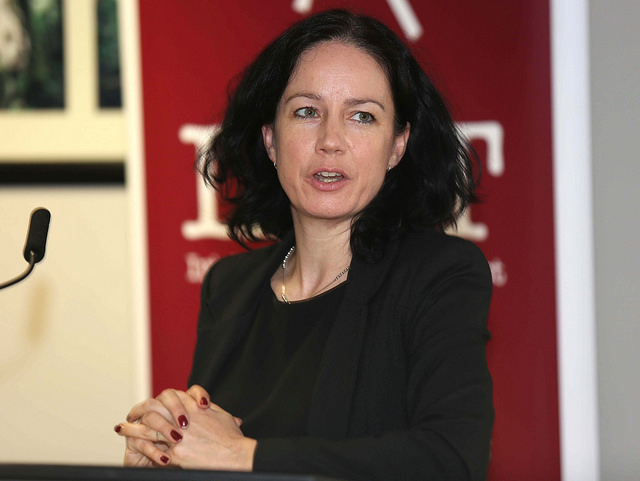Disabled prisoners facing challenges in ‘all areas of prison life’, report warns

Fíona Ní Chinnéide
Disabled people in Irish prisons face challenges in “all areas of prison life” and have poor understanding of their own legal rights, according to new research published by the Irish Penal Reform Trust (IPRT).
The penal reform group commissioned the report, entitled Making Rights Real for People with Disabilities in Prison, from the Centre for Disability Law and Policy at NUI Galway with funding from the Irish Human Rights and Equality Commission.
Speaking at the launch event this morning, IPRT executive director Fíona Ní Chinnéide said barriers and human rights issues facing disabled prisoners include isolation in cells, limited availability of accessibility aids, lack of appropriate information on prison services, and limited opportunities to communicate with peers and family members.
Although Ireland ratified the UN Convention on the Rights of Persons with Disabilities (CRPD) in 2018, prisoners with disabilities continue to face “widespread discrimination and human rights violations which greatly affect their ability to participate fully and equally in prison life”, she said.
The report highlights incidences of prisoners being confined to their cells because they cannot navigate the steps in a prison, leading to unnecessary isolation, which has a negative impact on mental health.
There is also “extremely limited” access to sign language interpretation for Deaf prisoners and inadequate provision of information about the prison in accessible formats, Ms Ní Chinnéide added.
IPRT has formulated 16 recommendations for addressing barriers facing prisoners with disabilities in Ireland, which includes a call for the Irish Prison Service (IPS) to undertake accessibility audits of all prison settings and engage in a disability equality analysis of its service.
Commenting on the report’s recommendations, Ms Ní Chinnéide said: “The Irish Prison Service has taken positive steps towards meeting its obligations under the Public Sector Equality and Human Rights Duty, including the recent appointment of an equality and diversity lead. We welcome this appointment, as well as the IPS’s positive engagement with this research and its facilitation of the research team.
“However, as evidenced by this report, prisoners with disabilities face significant barriers in Ireland, which need to be addressed. While the recommendations in this report should be a starting point, they should be expanded with the direct involvement of organisations for people with disabilities, as well as prisoners and former prisoners with disabilities, who are often best placed to determine the changes required.
“Adaptations to prison rules, the provision of supports and training of prison staff are necessary, but these steps can only be a foundation for more fundamental changes required throughout the criminal justice system as a whole to address the discrimination faced by people with disabilities.”





